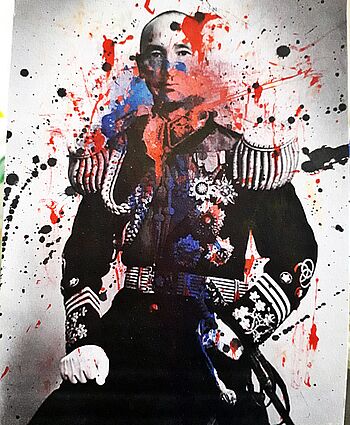In regard to Asia, the island state of Taiwan is rarely mentioned. Yet the small country off the coast of China is an example to the giant communist empire of how to successfully turn a dictatorship into a democracy. In Asia, Taiwan is now considered a model country in terms of freedom and the rule of law. The country also has much to show in the area of transitional justice.
From the Dictatorship to Democracy

Credit: Adece033090 / CC0
Taiwan – officially the Republic of China – is a densely populated island state off the coast of the People’s Republic of China. Some 23 million people live here on an area of 36,000 square kilometers that is smaller than Switzerland. Most inhabitants are followers of Buddhism and Daoism.
The former Japanese colony was awarded to the Republic of China at the end of World War II. The regime established on the island was soon perceived as authoritarian and corrupt. This led to an uprising in February 1947 that was brutally suppressed. Between 18,000 and 28,000 people, mostly members of the Taiwanese upper class, died in what is called the 228 Incident. The newly founded secret police, known as the Taiwan Garrison Command, played a key role in this uprising.
In 1948, in response to the advance of the communists in the civil war, the National Assembly granted dictatorial powers to Chinese President Chiang Kai-Shek. Martial law was imposed in China on May 20, 1949. In December, after the victory of Mao Tse-Tung, the Chinese government moved its headquarters to Taiwan. About two million officials, soldiers and members of the Chinese elite fled to the sparsely populated island, causing tensions between the inhabitants and the government.
Until his death in 1975, Chiang Kai-Shek ruled Taiwan under martial law. With no free elections permitted on the mainland, the National Assembly that had been elected in 1947 remained in office for over 40 years – the so-called Long Parliament. Taiwan was de facto a one-party state under the rule of Chiang Kai-Shek's party, the Kuomintang. Fearing communist infiltration, the regime incarcerated more than 10,000 people and issued 876 documented death sentences. Like Mao on the mainland, the government also operated a system of re-education camps. It also suppressed indigenous languages. At the same time, the state experienced an enormous economic upswing and rapid population growth.
In 1971, Chiang Kai-Shek's regime suffered a bitter foreign policy defeat when the People's Republic of China became a member of the UN in place of Taiwan. Most states subsequently broke off diplomatic relations with Taiwan. The Republic of China's claim to sole representation increasingly proved unrealistic. This was one factor that led to a growing democracy movement on the island in the 1980s. At first the movement’s followers were rigidly prosecuted, but in 1987 martial law was lifted and the establishment of political parties was allowed. The following year the founding of new newspapers was also permitted. Finally, free elections were held for the parliament in 1992 and for the president in 1996.
In 2000, the former state party lost the presidential election; for the first time the highest state office fell to the opposition and its Democratic Progress Party. This party is actively engaged in addressing the White Terror, as the persecution has come to be called. But it took until 2017 for it to successfully enact a law promoting a reappraisal of its recent history. Today Taiwan is considered a well-functioning democracy, ranking higher than the U.S. on the Freedom House index (as of May 2020).
Republic of China

Area: | 36,179 km² |
|---|---|
Inhabitants: | 23.6 million (2018) |
Population growth: | 0.2 % annually (2016) |
Population density: | 651 inhabitants per km² |
Seat of government: | Taipei |
Official languages: | Mandarin, Taiwanese, Hakka, Formosa languages |
Political system: | Semi-presidential democracy |
Head of state: | State President Tsai Ing-wen (since 2016) |
Head of government: | Prime Minister Su Tseng-chang (2006/07 and since 2019) |
Freedom status: | 93/100 |
BIP per capita: | 53,074 USD (adjusted for purchasing power, 2018) |
(افغانستان)
(Հայաստան)
(Azərbaycan)
(البحرين)
(বাংলাদেশ)
(မြန်မာ)
(中国)
(საქართველო)
(香港)
(العراق)
(ایران)
(日本)
(الأردن)
(កម្ពុជា)
(قطر)
(Кыргызстан)
(الكويت)
(ປະເທດລາວ)
(لبنان)
(澳門)
(Maldives)
(Federated States of Micronesia)
(Монгол Улс)
(नेपाल)
(조선민주주의인민공화국)
(عمان)
(پاکستان)
(Papua New Guinea)
(Pilipinas)
(Россия)
(대한민국)
(سوريا)
(Тоҷикистон)
(台灣)
(ประเทศไทย)
(Türkiye)
(Україна)
(O`zbekiston)
(الإمارات العربية المتحدة)
(Việt Nam)
(Беларусь)
(اليَمَن)